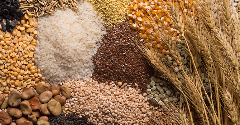News
Coffee innovation centres on value, flavour, and sustainability
18 Aug 2023Innovation in the coffee category is exploding, with brands experimenting with flavour profiles in ready-to-drink (RTD) products, novel packaging formats, and unique brewing processes.
Increasing inflation rates, reduced disposable incomes and subsequent coffee costs in shops impact consumers’ coffee habits. Many consumers, particularly in North America, are trading in their daily visits to grab RTD coffee on the go at their favourite food service outlet and instead, are opting for at-home coffee varieties.

Based on Mintel’s latest insights into coffee trends, concentrated coffee appeals to consumers due to its value per cup and versatile flavour profiles. Instant coffee and mixes provide value options to consumers looking for money-conscious coffee varieties. 2023 is the year of innovation in coffee, according to market intelligence company Mintel.
To stand out on the shelves and in digital baskets, coffee manufacturers are adding distinctive features to their formulations, including unique brewing processes, convenient packaging, and sustainability to provide a competitive advantage.
Brand equity is a core factor influencing decision-making in the coffee industry in 2023 and 2022. For example, Nescafé’s innovative Gold Smooth Soluble Coffee blend, has a purchase intent of 46% with consumers who have purchased the product previously and perceive it to be a trusted brand, Mintel’s coffee trends analysis finds.
However, premiumisation is still in-demand by coffee lovers. In the UK, 55% of coffee drinks believe premium coffee is an affordable luxury, Mintel states. Consumers that want premium options are willing to pay more for these high-end coffee formats.
Rising speciality coffee popularity
The National Coffee Association (NCA) has been tracking Americans’ coffee drinking habits since 1950 in the National Coffee Data Trends (NCDT) report, “the longest-running study of its kind”, a spokesperson for NCA told Ingredient Network. The 2022 NCDT Specialty Coffee Report found that speciality coffee beverages surpassed pre-pandemic penetration levels.
“Americans consistently choose coffee more than any other beverage”, NCA’s spokesperson says, with 66% of American adults choosing coffee daily according to the report’s Spring 2023 NCDT. Americans choose traditional and speciality coffee in similar numbers, with 41% of Americans consuming speciality coffee in the past day compared with 43% who had traditional coffee.
While speciality coffee saw a dip in consumption in January 2021, during the pandemic, figures have been on an upward trend since, both displaying increases in penetration in July 2021 and January 2022. This represents “the road for recovery” for speciality coffee, Cheryl Hung, Vice President of Insights at Dig Insights says.
However, traditional coffee blends still hold favour with consumers, despite sustainability concerns and interest in environmental initiatives, as consumers are not willing to try lab-grown coffee.
 © AdobeStock/Svitlana
© AdobeStock/Svitlana
Taste and flavour
While the NCDT doesn’t measure the factors relating to the personal interests and decisions behind that choice, it does ask consumers what coffee attributes influence their coffee purchases.
“It’s no surprise that taste and flavour-related factors come out on top”, says the NCA spokesperson. Of those asked, 60% of coffee drinkers say they are at least somewhat more likely to buy coffee labelled as “freshly roasted”, while 58% say the roast level, such as dark, medium or light, influences their coffee purchases.
New and novel coffee flavour combination profiles from added flavourings are popular among coffee drinkers, particularly those in Asia-Pacific. In India, for example, Mintel reveals that 46% of consumers say that additional flavour varieties in RTD coffee would encourage them to buy coffee. Exploring new and sought-after flavour profiles is vital for producers wanting to retain their existing customers and reach out to new audiences.
Sustainable purchases
However, taste isn’t the only thing consumers take into account. The NCA spokesperson shares that more than half (54%) of coffee drinkers say they are at least somewhat more likely to buy coffee identified as contributing to farmer livelihoods. In addition, 47% are at least somewhat more likely to purchase coffee placed as grown in an environmentally sustainable way.
In Europe, in particular, Mintel says, sustainable coffee claims are increasing in new product launches. Manufacturers recognise the importance of sustainability initiatives and engage in packaging reforms to appeal to an environmentally-conscious consumer base. In Italy, nearly nine out of ten (88%) consumers say they purposefully select products with sustainability claims over others, Mintel states.
Refill packs and eradicating non-recyclable components from the coffee packaging are key ways that coffee brands produce eco-friendly packaging to lower their environmental impact. Sustainable transport methods can also help reduce coffee production’s overall environmental effect.
Related news

Is the price of a sustainable and healthy diet… unsustainable?
4 Mar 2025
Healthier foods are more than twice as expensive per calorie as less healthy foods, with healthier food increasing in price at twice the rate in the past two years.
Read more
Does calorie labelling lead to reduced consumption?
27 Feb 2025
Calorie labelling of food products leads to a small, but consistent, reduction in the number of calories consumed, a study suggests.
Read more
Brands, retailers, and countries remain divided over Nutri-Score labels
30 Jan 2025
Europe's supermarkets and manufacturers are far from aligned over a standarised approach to nutrition labelling. Some welcome the non-mandatory Nutri-Score labels with open arms, while others have “considerable concerns”.
Read more
EU Parliament passes stricter packaging rules
20 Jan 2025
The European Parliament voted to approve updates to the packaging and packaging waste regulation, including enforceable re-use targets, limits on certain single-use packaging types, and restrictions on the use of PFAS “forever chemicals”.
Read more
Louis Drefyus Company powers on in plant-based with BASF ingredients acquisition
17 Jan 2025
BASF has agreed to sell its food and health performance ingredients business to Louis Dreyfus Company (LDC).
Read more
Major Belgian retailers promise standardised, reusable packaging at scale
16 Jan 2025
Albert Heijn, Aldi, Carrefour, Colruyt, Delhaize, and Lidl have launched a new reusable packaging coalition that aims to accelerate the use of reusable packaging, starting with mushrooms.
Read more
Kraft Heinz, Mondelēz, Coca-Cola, and Nestlé accused of marketing ‘addictive’ UPFs at children
15 Jan 2025
Major food manufacturers have been hit with a first-of-its-kind lawsuit alleging that they specifically engineer their ultra-processed foods (UPFs) to be addictive, and that they market the products towards children.
Read more
FDA reviews red food colour additive, Red No.3
9 Jan 2025
Amid considerations to tighten regulations around artificial ingredients, the US Food and Drug Administration (FDA) is exploring a potential ban on particular type of red food dye.
Read more
Sperri builds investment momentum with US expansion plans
7 Jan 2025
Hailed as Canada’s first organic and allergen-free plant-based meal replacement drink, food-as-medicine brand Sperri progresses its efforts to enter the US market.
Read more
Is it time for a global definition of whole grain?
30 Dec 2024
Amid a lack of harmonisation, the European Food Information Council (EUFIC) is calling for a global definition of the term whole grain to end consumer confusion.
Read more